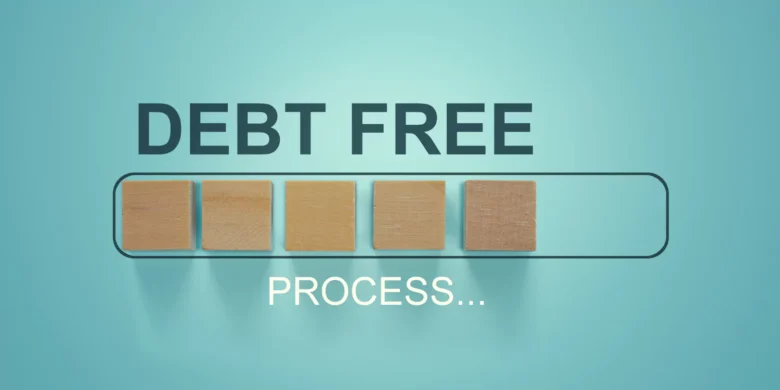If you’re struggling to balance your monthly budget, a debt counseling program may offer assistance. Joining such an offering is free of charge and will assist in developing an action plan to repay debts. Credit counselors work with creditors to negotiate better repayment terms, including reducing interest rates and waiving fees. They can also provide financial education courses and money management workshops that can help get your finances back on track.
1. Debt Collection Calls Are Stopped
Debt collector calls can be disruptive, stressful, and often illegal. There are laws protecting consumers from harassment by debt collectors; working with a credit counselor will allow you to enforce your rights and verify whether any debt is legitimate.
After reviewing your financial situation, a credit counselor can formulate a debt management plan to simplify your finances. This involves consolidating all debts into one monthly payment and working with creditors to reduce interest rates, waive fees, or adjust due dates. Debt settlement can help reduce debt and stop collection calls while potentially negatively affecting your credit score—typically considered a last resort option.
2. Debts Are Reviewed
Debt review services aim to assist consumers with financial challenges caused by unexpected circumstances, but it is crucial that they fully comprehend its repercussions before entering this process. Your debt counsellor will conduct an in-depth financial assessment that considers your income, living expenses, and amount of debt owed. They will then negotiate with your creditors to formulate a payment plan tailored specifically for you.
Under debt review, it will be prohibited for you to obtain new forms of credit such as store cards, personal loans, overdrafts, or hire-purchase agreements. Although this may be challenging, this experience will help teach you to live within your means and develop healthy money habits.
3. Debts Are Repaid
Debt refers to any money you borrow and must repay, usually with interest. Mortgages, credit cards, and student loans all fall under this category of borrowing money for various reasons; when used responsibly, it can actually benefit your financial health by borrowing only what is affordable for repayment.
Debt can be difficult to manage, particularly if the interest rates are high. Credit counselors can help devise an approach for paying off your debt more easily by creating a debt management plan involving depositing funds into an account dedicated to paying off unsecured debts.
4. Credit Scores Are Improved
Credit counselors can help you create a debt management plan (DMP). A DMP consolidates multiple debt payments into one manageable monthly payment and works with creditors to lower interest rates and waive fees, such as late fees.
Credit counseling services also provide budgeting and financial education, giving you the tools needed to make positive changes in your finances and avoid future trouble with debt relief or bankruptcy. However, credit counseling alone cannot remove or reduce debt as significantly.
5. Financial Education Is Provided
Credit counselors help individuals establish healthy financial habits to effectively manage debt and prevent future complications. You will learn about budgeting, credit use, and other topics to assist with meeting long-term financial goals more quickly and easily.
Counseling agencies can assist in negotiating with creditors to lower interest rates and waive fees in order to reduce monthly payments. They also offer debt management plans, commonly known as Individual Voluntary Agreements in the UK, allowing one payment to be made directly to them rather than being split among multiple creditors.
6. Debts Are Reduced
Credit counseling agencies frequently offer debt management programs (DMP), where creditors are contacted in order to negotiate reduced interest rates, and your multiple debts are combined into one monthly payment, making life simpler while helping reduce collection calls.
Many credit counseling organizations also provide educational materials and workshops on money management to equip you with skills that can support financial success long after your debts have been cleared up. This can help build skills necessary for long-term financial security. Debt settlement may help significantly lower your total debt balance; however, this decision could have serious repercussions for both your credit report and tax obligations.
7. Debts Are Repaid Faster
Many consumers find themselves overwhelmed by debt, seeking guidance and support to develop an individualized debt repayment plan. Credit counseling agencies provide these services. First, they review your finances and income. Next, they assist in creating a budget and setting financial goals; additionally, they may suggest ways to cut expenses and boost savings.
Enrolling in a debt management program allows a counselor to negotiate on your behalf with creditors to reduce interest rates and waive fees, then consolidate all your debts into one monthly payment—this often results in reduced overall costs compared to paying each debt individually.
8. Debts Are Repaid at Lower Interest Rates
Credit counseling helps you regain control of your debt by assessing and organizing all the money owing to you. One way of doing this is gathering all your debt documents into a folder or spreadsheet—make sure credit card statements, bills, and loan statements are included here as well as loan statements—then categorizing your debt into various categories like unsecured, secured, and past-due amounts.
Negotiate lower interest rates with creditors and lenders—this will save you both money in the long run. Be wary of organizations promising to settle or enroll you in a debt management plan without first reviewing your finances; they could be scams.
9. Debts Are Repaid in a Timely Manner
Debt counseling is an option to help you regain control of your finances but should only be pursued if you’re prepared for its possible impact on your credit score.
Credit counselors, which are usually nonprofit organizations, offer advice and services on managing spending and consolidating debt. They can assist in creating a budget and setting financial goals; encourage you to avoid high-interest debt; encourage savings accounts for emergencies; negotiate with creditors to reduce interest rates or waive fees if necessary; negotiate payments directly if needed; etc.




